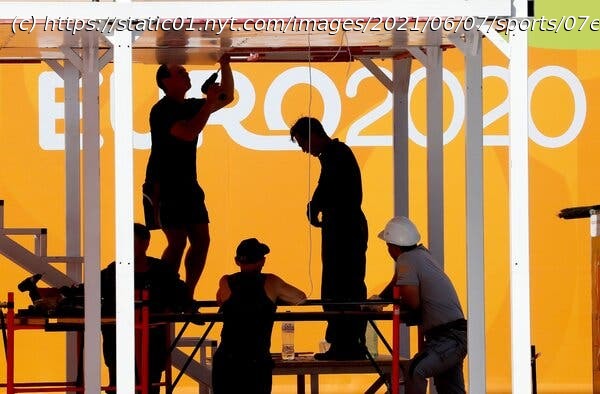Pulling off a tournament with games in 11 countries was always going to be difficult. Then the pandemic struck, and the job got even harder.
If Aleksander Ceferin has any say on the matter, there will never be another European soccer championship like the one that starts this week. And that decision has nothing to do with the coronavirus. Ceferin, the president of European soccer’s governing body, quickly listed the headaches that came with organizing this summer’s championship. Matches in 11 countries, originally 13, meant finding 11 cities and 11 stadiums capable of hosting them. It meant creating teams to run each site and arranging for dozens of hotels to house everyone who would go. But it also meant navigating legal jurisdictions and linguistic boundaries, tax laws and big politics as well as soccer politics, currency values and visa rules. And that was before the coronavirus made it all exponentially harder. “I would not do it again,” Ceferin said in a phone interview late last month. For the first time in its 61-year history, the European Championship, which begins on Friday with a game between Italy and Turkey in Rome, is being played on a continentwide basis. It will feature big players and small crowds, and host cities as far apart as Seville, Spain, near the southwest tip of the Iberian Peninsula, and Baku, the capital of Azerbaijan, nestled on the Caspian Sea. The latter is closer to Tehran and Baghdad than it is to any of the other 10 tournament sites. It will play out using a schedule that had to be fixed enough to ensure several countries would play the bulk of their games on home soil, yet flexible enough that it could change as coronavirus outbreaks and travel restrictions demanded. It meant coming to terms with what Britain’s departure from the European Union amounted to in practice, sometimes before even Britain was sure, and finding solutions after two cities were stripped of their games in April. And it meant that whatever happens over the next month — however many goals are scored, however many thrilling matches are played — that there is certain to be only one overriding sensation for organizers when the final whistle blows on July 11: relief. “It’s very complicated,” Ceferin said in a world-class understatement, “and now it’s even more complicated.” And none of it, he is quick to point out, was his idea. The idea of a pan-continental European championship was the brainchild of Michel Platini, Ceferin’s predecessor as president of UEFA. Platini had proposed the idea of a Europe-wide celebration in 2012, after Turkey, the only bidder for the soccer event, refused to rule out also seeking the hosting rights for the Olympics that would be held in the same summer in 2020. No country, UEFA felt, could pull off the Olympics and the European Championship — a soccer tournament second only to the World Cup in viewership and prominence — in close succession. Spreading the Euros around, Platini decided, could spread the joy of the event, but also serve as a valuable hedge in case Turkey had to choose between the games and the Games. By 2015, though, Platini was gone, one of the soccer officials ousted in a corruption scandal.






